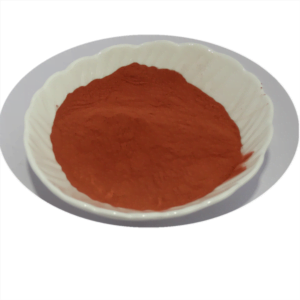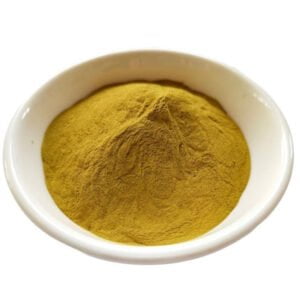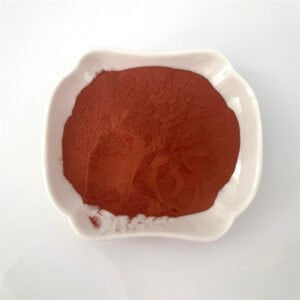Spherical Nickel Powder
Table of Contents
Spherical nickel powder, a revolutionary material with a near-perfect ball-like shape, is making waves in various industries. Imagine tiny, uniform nickel spheres – the building blocks for a new generation of technological advancements. This guide delves deep into the world of spherical nickel powder, exploring its properties, applications, advantages, limitations, and various models available.
Properties of Spherical Nickel Powder
Nickel powder, in its standard form, consists of irregularly shaped particles. But the magic happens when these particles are transformed into near-perfect spheres. This seemingly minor change unlocks a treasure trove of desirable properties:
- High Flowability: Imagine pouring sand – it flows freely due to the spherical shape of the grains. Spherical nickel powder behaves similarly, enabling smooth movement within machinery and during 3D printing processes.
- High Packing Density: Imagine packing oranges in a box – irregular shapes leave a lot of empty spaces. Spherical nickel powder, like neatly arranged marbles, packs tightly, maximizing material usage and minimizing waste.
- Excellent Conductivity: Spherical particles offer a larger surface area compared to irregular shapes, enhancing their ability to conduct heat and electricity.
- Enhanced Sintering: Sintering is a process that binds metal particles together. Spherical nickel powder sinters more efficiently due to its uniform shape and consistent contact points.
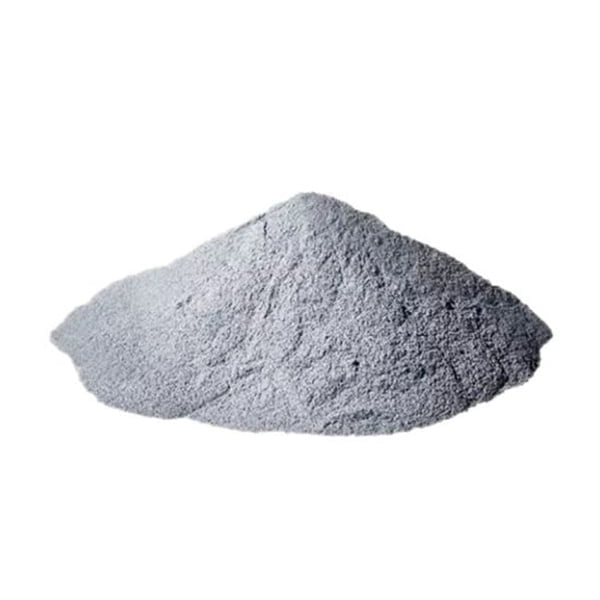
Composition and Key Characteristics
Spherical nickel powder, as the name suggests, is primarily composed of nickel (Ni) particles. However, depending on the desired properties, small amounts of other elements like copper (Cu) or carbon (C) might be added.
Here’s a table summarizing the key characteristics of spherical nickel powder:
| Characteristic | Description |
|---|---|
| Primary Composition | Nickel (Ni) |
| Shape | Spherical |
| Flowability | High |
| Packing Density | High |
| Conductivity | Excellent (heat & electricity) |
| Sintering | Efficient |
| Particle Size | Varies depending on application (typically 3-150 microns) |
| Purity | Typically high (over 99%) |
Applications of Spherical Nickel Powder
Spherical nickel powder’s unique properties translate into a diverse range of applications:
| Application | Describtion |
|---|---|
| Battery Electrodes | The high packing density and excellent conductivity make spherical nickel powder ideal for creating high-performance battery electrodes, leading to longer battery life for our portable devices. |
| Metal Additive Manufacturing (3D Printing) | Spherical nickel powder’s flowability makes it perfect for 3D printing intricate metal parts. Think of it like building structures with tiny, perfectly shaped bricks! |
| Electroplating | The uniform surface area of spherical nickel powder allows for consistent and efficient electroplating, a technique used to coat other materials with a thin layer of nickel. |
| Welding Electrodes | Spherical nickel powder can be incorporated into welding electrodes, improving weld quality and stability. |
| Conductive Additives | In various composite materials, spherical nickel powder acts as a conductive additive, enhancing the overall electrical conductivity. |
| Catalyst Supports | The high surface area of spherical nickel powder makes it a valuable material for supporting catalysts in chemical reactions. Imagine tiny spheres providing a platform for chemical reactions to occur efficiently. |
| Friction Materials | Spherical nickel powder can be used in friction materials like brake pads, offering improved wear resistance and braking performance. |
These are just a few examples, and as research progresses, we can expect to see spherical nickel powder play an even bigger role in shaping the future.
Specific Models of Spherical Nickel Powder
With the growing demand for spherical nickel powder, various manufacturers have developed a range of models catering to specific needs. Here are ten prominent models to consider:
| Model Name | Supplier | Description | Key Applications |
|---|---|---|---|
| DP1309 | Stanford Advanced Materials | High purity (99.5%), smooth surface, uniform particle size distribution (3-15 microns) | 3D printing, catalysts |
| SN-001 | Atlantic Equipment Engineers | High purity (99.9%), various particle sizes (5-150 microns) | Battery electrodes, metal injection molding |
| IN-101 | Micron Metals | High purity (99.95 microns), particle size 4 microns | Electronics, conductive additives |
| SPN | Höganäs AB | Tailor-made properties for specific applications | Diverse applications depending on customization |
| Spheric Nickel Powder | American Elements | High purity (99.5%), various particle sizes (10-100 microns) | Electroplating, welding electrodes |
| NickeSphere™ | Carpenter Additive Powder Products | Engineered for optimal flowability and packing density in 3D printing processes | Metal additive manufacturing (3D printing) |
| Nanosized Spherical Nickel Powder | US Research Nanomaterials, Inc. | Ultra-fine particles (10-50 nanometers) | Catalyst supports, research & development applications |
| Carbonyl Nickel Powder | Sandvik Hyperion | High purity (99.8%), spherical particles with a porous structure | Battery electrodes, gas diffusion electrodes |
| Nickel Powder S-Type | Adams Metallurgical Products Inc. | Spherical particles with a dendritic (branch-like) internal structure | Brazing alloys, conductive additives |
| INCO® Nickel Powder | Vale | Tailor-made properties for specific applications, available in various grades | Diverse applications depending on customization |
Choosing the Right Model: A Matter of Nuance
As you can see, each model boasts unique characteristics – particle size, purity level, and even internal structure. Selecting the ideal model hinges on your specific application. Here are some key factors to consider:
- Particle Size: For applications like 3D printing and battery electrodes, a finer particle size (3-15 microns) is preferred for better flowability and packing density. Conversely, for applications like welding electrodes, a slightly larger particle size (45-100 microns) might be suitable.
- Purity: High purity (over 99%) is generally desired for applications demanding optimal conductivity, like battery electrodes and electronics. However, for some applications like friction materials, a slightly lower purity level might be acceptable.
- Surface Characteristics: The surface smoothness of the spheres can impact factors like flowability and packing density. A smoother surface might be preferred for 3D printing, while a slightly rougher surface might be suitable for applications like conductive additives.
Beyond the Basics: A Look at Advantages and Limitations
Spherical nickel powder offers a compelling set of advantages:
- Enhanced Performance: The unique properties of spherical nickel powder translate into improved performance in various applications. For instance, it leads to higher packing density in battery electrodes, resulting in longer battery life.
- Improved Processing: Spherical nickel powder’s flowability makes it easier to handle and process during production, reducing waste and improving efficiency.
- Material Versatility: Spherical nickel powder can be customized with varying particle sizes, purity levels, and even internal structures to cater to specific needs.
However, it’s important to acknowledge some limitations:
- Cost: The production process for spherical nickel powder can be more expensive compared to irregular nickel powder.
- Availability: While the availability of spherical nickel powder is increasing, it might not be readily available in all regions or for all custom specifications.
The Verdict: A Material Shaping the Future
Spherical nickel powder represents a significant advancement in material science. Its unique properties and versatility position it as a game-changer in various industries. As research and development continue, we can expect to see even more innovative applications emerge, solidifying spherical nickel powder’s place as a cornerstone material for the future.
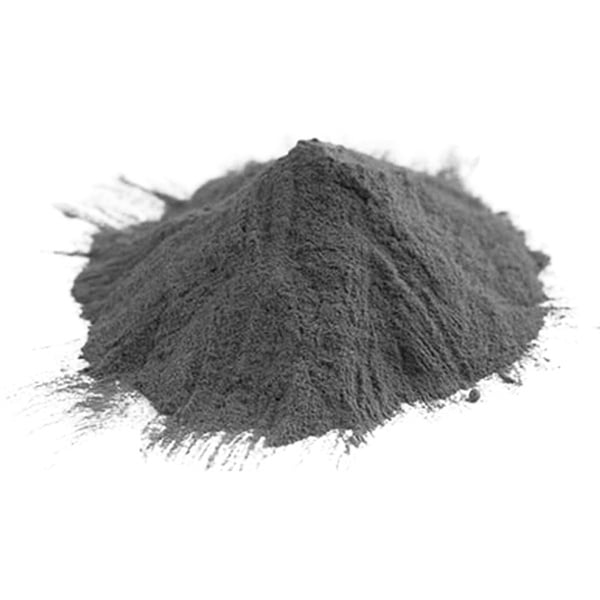
FAQ
Q: What are the typical sizes of spherical nickel powder?
A: Spherical nickel powder typically ranges from 3 to 150 microns in particle size. The ideal size depends on the specific application.
Q: Is spherical nickel powder expensive?
A: Generally, spherical nickel powder is more expensive than irregular nickel powder due to the production process.
Q: What are some safety considerations when handling spherical nickel powder?
A: Nickel powder can be irritating to the skin and lungs. Always wear appropriate personal protective equipment (PPE) like gloves, safety glasses, and a respirator when handling nickel powder.
Q: Where can I buy spherical nickel powder?
A: Several suppliers offer spherical nickel powder. The table above lists some prominent suppliers, but it’s recommended to conduct further research to find a supplier that meets your specific needs and location.
Q: Can spherical nickel powder be recycled?
A: Yes, under certain conditions, spherical nickel powder can be recycled. The feasibility depends on the application and the level of contamination.
Conclusion
Spherical nickel powder, with its remarkable properties and diverse applications, is a material poised to revolutionize various industries. By understanding its characteristics, advantages, limitations, and the available models, you can harness the power of this innovative material to create the next generation of technological advancements.
Share On
MET3DP Technology Co., LTD is a leading provider of additive manufacturing solutions headquartered in Qingdao, China. Our company specializes in 3D printing equipment and high-performance metal powders for industrial applications.
Inquiry to get best price and customized Solution for your business!
Related Articles
About Met3DP
Recent Update
Our Product
CONTACT US
Any questions? Send us message now! We’ll serve your request with a whole team after receiving your message.

Metal Powders for 3D Printing and Additive Manufacturing
COMPANY
PRODUCT
cONTACT INFO
- Qingdao City, Shandong, China
- [email protected]
- [email protected]
- +86 19116340731











